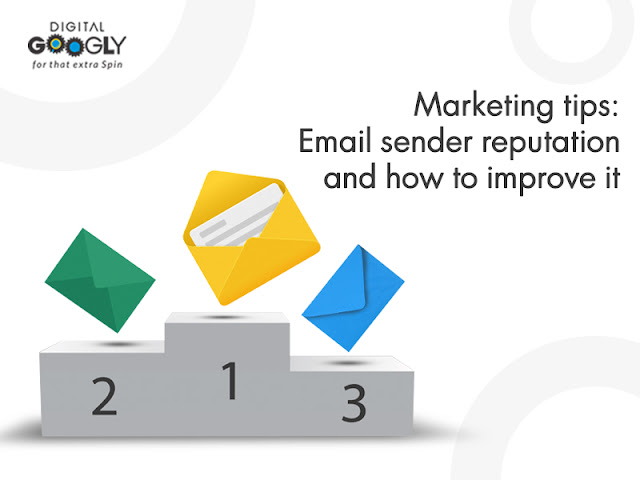With each passing day, a new company or two emerges on the scene. How can you ensure that your company rises to the top in such a competitive environment? By establishing a strong reputation for your company. Your company's capacity to attract new customers, grow its operations, and, as a result, outperform its competitors is ultimately determined by its reputation.
Your marketing activities have a big influence in determining your brand
reputation, in addition to the quality of your products and services. The way
you go about increasing your exposure has an impact on your consumers' (both
current and potential) perceptions of you. Email is currently at the core of
many companies' communication and marketing activities, reveals a senior
official of a top email marketing company in New Jersey.
What Does It Mean By Email Sender
Reputation
Your ISPs (Internet Service Providers) assign an email sender reputation
score to your email sending IP (Internet Protocol) address. Multiple elements
influence it, including email sending frequency, bounces, the quantity of
messages sent, opens and forwards, link clicks, the number of receivers who
report you as spam, and the number of unsubscribed users. From one ISP to the
next, the weighting given to the criteria that determine your reputation
varies.
Your email deliverability is directly proportional to your email sender
reputation: the better the score, the more likely your emails will be
delivered. If you're not sure where your reputation stands, look back at your
previous achievements. Open rates that are steadily falling are generally
strong symptoms of a worsening sender reputation. If you don't address this in
a timely manner, the receiving mail servers will surely bounce or designate
your emails as spam.
How To Improve Your Email Sender
Reputation
The following are the emailmarketing agency’s tips for an improved email sender reputation.
Construct high-quality lists
Ensure that you're collecting your addresses towards the rear of opt-ins (single or double) while you're building your email list. Opt-ins allow you to create permission-based lists in which each contact is aware that they have agreed to receive your communications. They'll respond to your emails, opening the way for higher open and engagement rates.
Keep your IP reputation intact
Even if your email content complies with all anti-spam rules, spam
filters may still be irritated if your IP credibility is unproven. Most ISPs
have a zero-tolerance policy for spam, and if your IP credibility isn't up to
par, your email sender reputation will suffer as a result.
Build domain reputation
Protecting your domain reputation is just as important as securing your
IP reputation. You can use Sender Policy Framework (SPF) and DomainKeys
Identified Mail to authenticate your email domains (DKIM). SPF holds a list of
all authorized IP addresses that have permission to send emails from your domain.
When you include the DKIM signature to your emails, your receivers can verify
that the message was sent by you and that it hasn't been tampered with along
the way.
Engage recipients using targeted
content
Low engagement rates are at the root of a large number of bad email
sender reputation incidents. Gone are the days when bulk mailing was the
greatest way to be noticed. In today's world, the only way to get your clients'
attention is to intercept them with relevant communications.
Final Thought
Your email marketing strategy will only have the
impact it deserves if your email sender reputation,
and deliverability are strong. We hope that this blog from an expert
of the best email marketing company in New Jersey will assist you in taking the initial step in that direction.
Subscribe by Email
Follow Updates Articles from This Blog via Email


No Comments